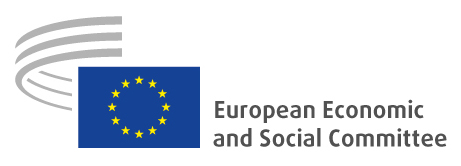 Homepage CASE
Homepage CASE
Selected values

How to eradicate skills poverty among the most vulnerable?
-
Date:
14 Jul 2023 - 12 Mar 2024
-
Project duration:
14.07.2023 - 12.03.2024
-

Agnieszka Maj
Economist
Agnieszka Maj is an Economist at CASE. She holds an MA degree in International Economic Relations from Cracow University of Economics. Currently, she is obtaining an MA in Gender Studies – Intersectionality and Change at Linköping University. During her education (on both BA and MA levels) she participated in numerous exchange programs at the University … <a href="https://case.dev10.pro/project/how-to-eradicate-skills-poverty-among-the-most-vulnerable/">Continued</a>
Projects from this author:
-
Local and regional success stories of investing in disaster resilience
The aim of the study is to collect, map and share good practices, examples and success stories of investing in disaster resilience (including but not limited to in response to past disasters and the lessons learned from them) at local and regional level. The study focuses on collecting evidence on initiatives, good practice examples and measures taken by the NAT commission members to improve disaster resilience. The study will be built on interviews with NAT commission members based on a questionnaire. The study will also draw conclusions on the benefits of investing in disaster resilience and make some recommendations to local and regional authorities for moving forward based on the success stories collected from the members demonstrating that smart investment at local and regional level can make a difference in disaster risk reduction. The focus will be mainly, but not exclusively, on extreme weather events and climate-related disasters, given their growing frequency, intensity and impact. The study will contribute to knowledge sharing and exchange of good practices, by collecting and sharing success stories from and by members who have invested in reducing vulnerabilities and strengthening disaster resilience at local and regional level. As a repository of local and regional good practice examples, initiatives and measures relating to disaster preparedness and resilience, the aim of the study is also to feed into a bigger and longer-term project to map success stories of investing in disaster resilience on the ground.
- Cancer: repository of regional prevention and detection policies
-
Natural disasters: anticipatory governance and disaster risk management from a local and regional perspective
The COVID-19 pandemic, the war right on our doorstep, the devastating floods in Slovenia, wildfires in Greece and Cyprus, relentless heatwaves in Italy and Spain, to name just a few: all of them highlight the need to better prepare for, cope with and recover from disasters and crises. It is one of the most important challenges for … Continued
-
Local and regional success stories of investing in disaster resilience
-

Delia Agostinelli
Economist
Delia Agostinelli is a Junior Economist at CASE. Graduated cum laude in Economics and Economic Policy at the University of Bologna with a thesis entitled “Impact of skilled migration on human capital formation and growth performance of source countries“. At CASE, Delia is involved in projects related to green economy, energy policies as well as … <a href="https://case.dev10.pro/project/how-to-eradicate-skills-poverty-among-the-most-vulnerable/">Continued</a>
Projects from this author:
-
Mapping of EU Member State Legal Pathways for Labour Migration and Mobility (Phase II)
The Migration Partnership Facility (MPF) is an EU-funded programme that is implemented by ICMPD. The MPF supports the preparation and implementation of partnership initiatives supporting more effective migration management and dialogue by providing targeted, flexible and tailor-made assistance (mostly through grants) to the EU’s priority countries covered by various funding instruments included under the MPF. … Continued
-
E-services for citizens at local and regional level in EaP countries
The study commissioned to CASE by the Committee of the Regions and entitled “E-services for citizens at local and regional level in EaP countries” is meant to provide facts and figures, background information, and preliminary analysis on the electronic (digital) administrative and information services that the local authorities in selected Eastern Partnership (EaP) countries – … Continued
-
Repercussions of the agri-food crisis at the local and regional levels
Project description: The war in Ukraine has further destabilised already fragile agricultural markets, in addition to challenges due to the COVID-19 pandemic and climate change. It directly affects global food supplies of wheat, maize, barley and sunflower oil and affects already high food, feed, fertiliser and fossil fuel energy prices. In this context, the European … Continued
-
Mapping of EU Member State Legal Pathways for Labour Migration and Mobility (Phase II)
-

Izabela Marcinkowska
Labor market, social policy, and employment director
Dr. Marcinkowska's areas of expertise include the labor market, social policy, and employment. As President of the Management Board, Dr. Marcinkowska is responsible for managing all research and projects in the areas of demography, labor, and social policy, overseeing CASE’s financial administration, and spearheading new business development activities. Dr. Marcinkowska has been cooperating with CASE since 2005, and has participated in numerous Polish and international technical assistance and research projects, including the multi-year MOPACT (Mobilizing the Potential of Active Ageing in Europe) Project, funded by the European Commission’s DG on Research and Innovation; NEUJOBS – Employment 2025: How will multiple transitions affect the European labor market, also funded by the European Commission’s DG on Research and Innovation; the Study on the effects and incidence of labor taxation, funded by the European Commission’s DG on Taxation and Customs Union, and Assessing Needs of Care in European Nations (ANCIEN), funded by the European Commission’s Health Cooperation Program. Dr. Marcinkowska obtained her PhD in Economic Science on Informal Employment from the University of Turin. She holds an MA in Economics from the University of Warsaw and an MA in Economics from CORIPE Piemonte in Turin. She has published extensively in the fields of labor economics, social policy, and health economics.
Projects from this author:
- Study on ‘EU school scheme from the regional and local perspective: enhancing impact, alignment, and integration into food strategies’
-
Methodologies for Teamworking in Eco-Outwards Research (METEOR)
Key words: doctoral education, transversal skills, sustainable development, On December 1st, the METEOR project started, funded under the Horizon program. The project, led by CASE and implemented with the participation of 11 other partner organizations and one associated partner from Brazil, will last 36 months. The overall aim of METEOR is to improve the transversal skills of current postgraduates and early career researchers, with consequent benefits to research ecosystems, in line with Open Science and Responsible Research and Innovation (RRI) and focused on the UN Sustainable Development Goals. METEOR emphasizes the capacity to collaborate, work in groups and to develop international transdisciplinary projects oriented towards societal challenges and doctoral employment opportunities. METEOR has 6 specific objectives (SO) corresponding to its work package structure: SO1: Effective Management (WP1). SO2: Collect, analyse and report evidence supporting the need for an innovative doctoral training program (WP2). SO3: Develop a comprehensive transversal skills training program comprising a suite of 10 online training resources, using participatory methodologies co-created with the PhDs, ECRs, institutions and researchers, to enhance the skills specified in the Call (WP3). SO4: Implement the resources from WP3 and related activities in online and in-person delivery mode, with online and F2F events, and Peer Mentoring Groups consisting of 4-6 researchers collaborating for 15 months, with a target of 300 +/- individuals in 50 groups, preparing 50+ proposals based on UN SDGs and focused on impact (WP4). SO5: Create policy and exploitation routes for increasing the scope of doctoral training at local and national levels (WP5). SO6: Communicate and disseminate METEOR activities and results to a wider audience and ensure project’s continuity beyond the funded period (WP6). METEOR activities will benefit doctoral candidates (employment prospects/ earnings), institutions (recruiting PhD candidates, better supervision, more impactful research), industry/public sector (employees with high level research and transversal skills) and society generally (more research focused on challenges). Grant: This project has received funding from Horizon Europe – the Framework Programme for Research and Innovation (2021-2027) call: HORIZON-CL2-2024-TRANSFORMATIONS-01 under grant agreement No 101178320 — METEOR. Project leader: CASE - CENTRUM ANALIZ SPOLECZNO- EKONOMICZNYCH- FUNDACJA NAUKOWA (CASE) Partners: NORD UNIVERSITET (NU), THE OPEN UNIVERSITY (OU), UNIVERSITA DEGLI STUDI DI VERONA, (UNIVR), EUROPEAN UNIVERSITY - CYPRUS LTD (EUC), JYVASKYLAN YLIOPISTO (JYU), KASTAMONU UNIVERSITESI (KU), ILIA STATE UNIVERSITY (ISU), CEEI BURGOS (ES), HACETTEPE UNIVERSITESI (HU), ROSKILDE UNIVERSITET (RUC), SYNYO GmbH (SYNYO), State University of Bahia (UNEB, associated partner)
-
Tourism and Rural Development
The study commissioned to CASE by the Committee of the Regions and entitled “Tourism and Rural Development” is to provide a brief analysis of the main barriers and enablers to tourism as part of rural development in the European Union from the perspective of subnational governments. The study also will pay attention to identify supporting … Continued
-

Oskar Chmiel
Oskar Chmiel holds a PhD in Social Sciences with a specialization in Political Science from the University of Wroclaw. He is particularly interested in the political and social aspects of international development cooperation, migration, and trade. Prior to joining CASE, Oskar gained experience working, among others, as an intern at the Polish Centre for African … <a href="https://case.dev10.pro/project/how-to-eradicate-skills-poverty-among-the-most-vulnerable/">Continued</a>
Projects from this author:
- Capacity building for local and regional authorities in the light of the Ukraine Facility (Pillar III)
-
In search of mechanisms linking the pseudo-causal narratives and policy outcomes: the case of the Trade-Development-Migration nexus in the EU’s approach towards the countries of its Southern Neighbourhood
The project will examine what causal mechanisms link the pseudo-causal policy narratives and policy outcomes in the European Union’s trade-development-migration nexus (hereafter, T-D-M nexus), and how they do it. To address this question, the project will focus on the narratives about addressing the root causes of migration through trade and development cooperation, produced by … Continued
-
Study on Energy policy and the labour market: consequences for employment in regions undergoing energy transitions
The different legislative proposals in the ‘Fit for 55’ package mean a dramatic shift of employment in certain regions, either dependent on raw materials for power generation (such as coal mining), directly linked to its generation (power plants, refineries, etc.) or with carbon-intensive industries that are forced out of business. Given the increasingly urgent need … Continued
-

Magdalena Wiśniewska
Magdalena Wiśniewska is responsible for managing research projects at CASE. She holds MA in International Relations from the Nicolaus Copernicus University in Toruń and MA in Finance & Accounting from Warsaw School of Economics. During her career she gathered an extensive experience both in the public and private sector. She worked among others for Office … <a href="https://case.dev10.pro/project/how-to-eradicate-skills-poverty-among-the-most-vulnerable/">Continued</a>
Projects from this author:
-
Local and regional success stories of investing in disaster resilience
The aim of the study is to collect, map and share good practices, examples and success stories of investing in disaster resilience (including but not limited to in response to past disasters and the lessons learned from them) at local and regional level. The study focuses on collecting evidence on initiatives, good practice examples and measures taken by the NAT commission members to improve disaster resilience. The study will be built on interviews with NAT commission members based on a questionnaire. The study will also draw conclusions on the benefits of investing in disaster resilience and make some recommendations to local and regional authorities for moving forward based on the success stories collected from the members demonstrating that smart investment at local and regional level can make a difference in disaster risk reduction. The focus will be mainly, but not exclusively, on extreme weather events and climate-related disasters, given their growing frequency, intensity and impact. The study will contribute to knowledge sharing and exchange of good practices, by collecting and sharing success stories from and by members who have invested in reducing vulnerabilities and strengthening disaster resilience at local and regional level. As a repository of local and regional good practice examples, initiatives and measures relating to disaster preparedness and resilience, the aim of the study is also to feed into a bigger and longer-term project to map success stories of investing in disaster resilience on the ground.
-
VAT gap in Europe – report 2025
The study's primary objective is to collect and supply economic information from existing official economic and statistical databases, as well as to gather primary data from national authorities. The study will also conduct macroeconomic analysis for country-specific VAT compliance and policy gap estimations and the impact of the coronavirus pandemic. Moreover, the study will include up to five case studies on specific countries and/or topics, to be proposed by the contractor in their technical offer. Geographically, the study will cover all EU Member States, subject to quality checks for data reliability and robustness. This includes coverage of the United Kingdom during its time as an EU Member State. In addition, the study will test and implement, where possible, the inclusion of EU candidate countries and possible candidate countries, except for Türkiye. These countries include: • Albania, Montenegro, North Macedonia, and Serbia1 (candidate countries at the stage of accession negotiations); • Ukraine, Moldova, and Bosnia and Herzegovina (Candidate countries for which the Council has decided to open accession negotiations); • Georgia (candidate country); • Kosovo (potential candidate country). The study's temporal scope will cover primarily a 6-year period, comprising: • a comprehensive review and revision of ‘full estimates’ for the first four years, i.e., for 2019-2022; • a new ‘full estimate’ for the fifth year, i.e., for 2023; • provisional ‘fast estimates’ for the sixth year based on simplified methodology for 2024. In addition to the 6-year coverage, the study will provide a historical context by reporting on VAT compliance gaps from 2000 onwards, and VAT policy gap estimates, including its components, from 2016 onwards. This will provide a comprehensive timeline of these indicators. The study will also include a review of the economic and policy context, also including an outlook beyond this 6-year period.
-
Wealth taxation, including net-wealth, capital and exit taxes
The study aims to provide further information regarding the uptake and economic consequences of introducing wealth-related taxes. The purpose of the study is to shed further light firstly into recurrent wealth related taxes by (i) reviewing the conditions for the implementation of a net wealth tax and its consequences, to provide a detailed literature review on recurrent capital taxes in the EU and analyse their economic consequences; and secondly (ii) to provide an overview of existing non-recurrent wealth related taxes, namely, by providing an overview of capital taxes, inheritance and gift taxes and the existing exit tax provisions in the field of personal income taxation (including relevant statutory references), and how these interrelate with and complement the legal framework of taxing net wealth and capital gains. The study builds on previous research work mapping wealth taxes and estimating the consequences of their introduction. It is structured along two parts comprised of two and three workstreams respectively, related to the topics outlined above. Part 1 – Recurrent taxation, Workstream 1 – Net wealth taxes Part 1 – Recurrent taxation, Workstream 2 – Capital taxes Part 2 – Non-recurrent taxation, Workstream 3 – Capital taxes Part 2 – Non-recurrent taxation, Workstream 4 – Inheritance and gift taxes Part 2 – Non-recurrent taxation, Workstream 5 – Exit taxes
-
Local and regional success stories of investing in disaster resilience
Related projects
Thanks for joining us!
You're now part of a community that values [your newsletter's focus]. Get ready to stay informed, inspired, and engaged with our carefully curated content.
